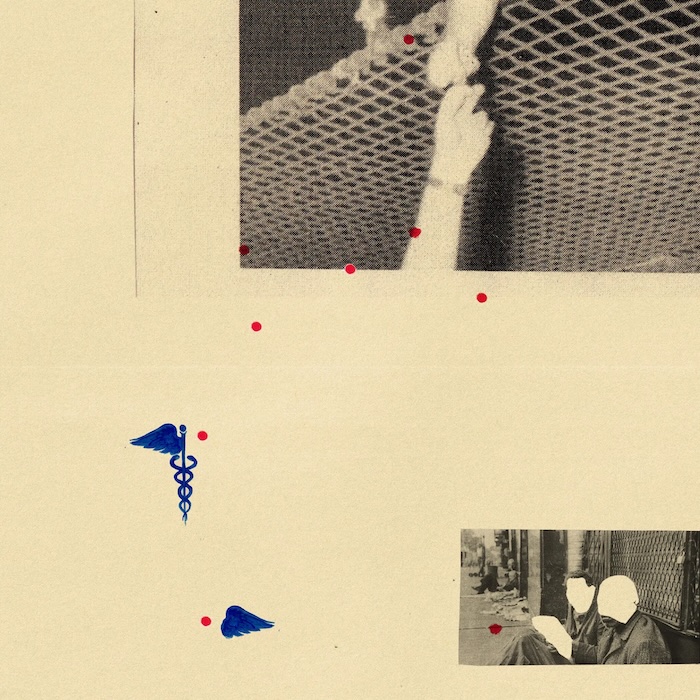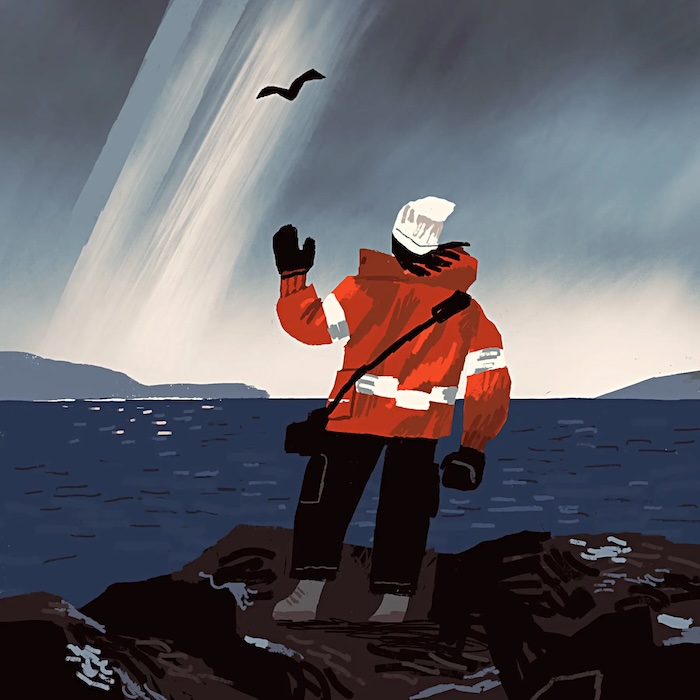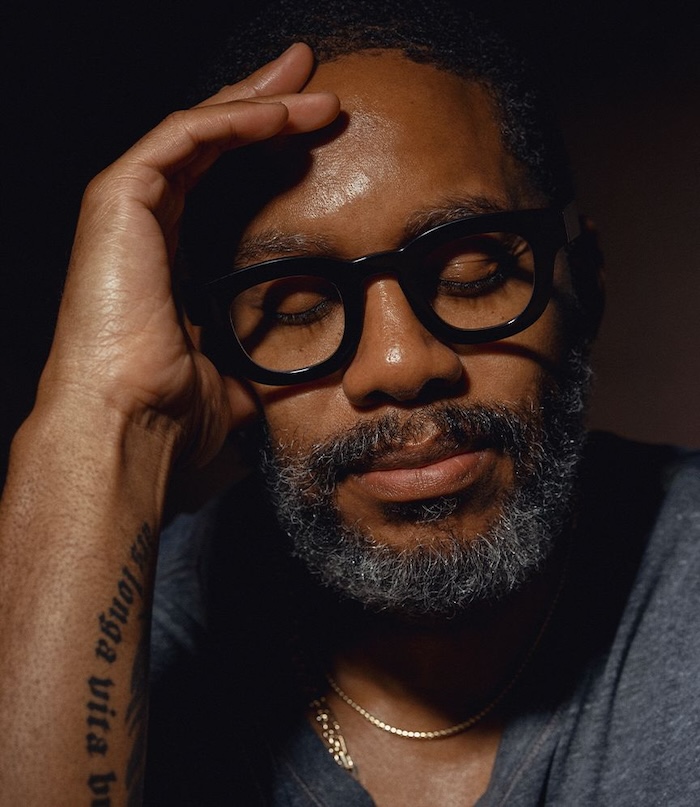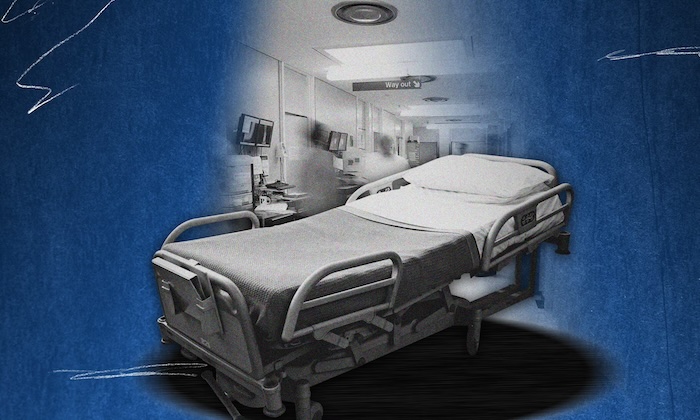— If watching them age is causing dark-thought spirals, here’s what a psychologist recommends.
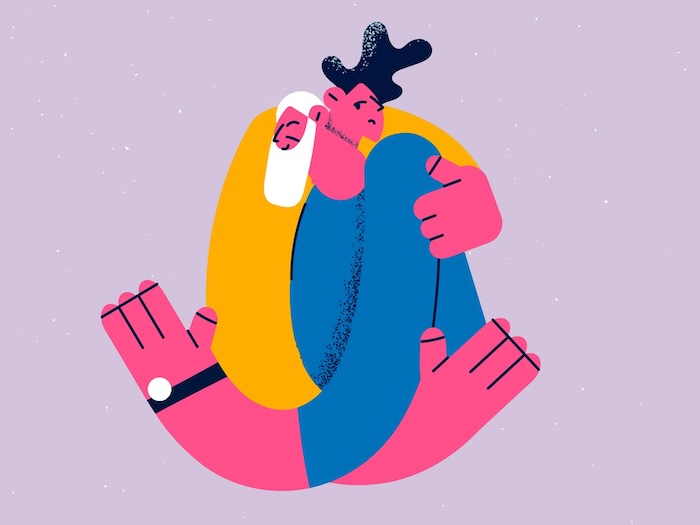
My deepest fears love to show up right as I’m trying to drift off to sleep—anxious brains are fun like that—and lately, a recurring theme in my after-dark intrusive thoughts is my mom dying. I’ve been straight-up terrified of losing her since I was a little girl (for a bunch of sad, childhood-trauma-related reasons I won’t hit you with here, this topic is dark enough already). But I haven’t been this anxious about it in years, and I know why it’s haunting me again: I’m watching her age.
She’s in her 70s now, and while she’s relatively healthy, active, and sharp (shout-out to my Wordle buddy), there’s no getting around the fact that her body is getting older, and she’s not going to be around forever. In other words, my formerly irrational fear of suddenly losing her isn’t all that far-fetched. And I know—from talking to other friends with older parents, listening to mental health podcasts like it’s my job, and using common sense—that my experience isn’t unique.
Parents are typically the first adults we attach to as babies and who we first rely on for survival, so of course the thought of them dying is going to bring up bone-deep, primal terror for a lot of us. And while an occasional “My parent is going to die!” freak-out might feel manageable, if that fear is regularly causing you to spiral (or, like me, lose sleep), it’s worth finding ways to manage it.
That’s why I asked Beverly Ibeh, PsyD, a therapist at Thrive Psychology Group who specializes in anxiety and grief, for her best advice on what to do if you’re overcome with anxiety and existential dread at the thought of losing your aging parent(s)—both so you (and I) can feel a bit better now and in the future.
Examine your underlying fears—and then fact-check them.
Often, our biggest fears stem from imagining the worst-case scenario instead of the likely one. “Feelings are usually never logical, so make sure to understand where your worries stem from, and then look into how based in reality they are,” Dr. Ibeh says. Yes, your parent(s) will die at some point, as we all will, but your anxiety about that fact likely comes from what you imagine will happen after they pass away, she explains—and fact-checking this fictional future can make it look less bleak.
If I question the root of my mom-death fear, I can see that it’s not just about the fact that I won’t be able to call, hug, or do crossword puzzles with her, but that, without her on the planet—the only person who accepts me fully, 100% of the time—I won’t be okay. The thing is, I don’t know that, because she’s still here. But I do have plenty of evidence to the contrary: I know that people have been losing their parents and surviving the grief since the beginning of time—and that I’ve gotten through other very dark, seemingly hopeless periods.
If you, too, are terrified you won’t be able to cope, take some time to think about (or write down) other losses you’ve survived in the past or personal strengths that make you resilient to prove yourself wrong, Dr. Ibeh recommends. Or maybe your underlying fear is more about losing emotional support. You can challenge that too: Think of other people in your life who you know you can lean on, and remember that you can talk to a therapist for help if you need it, she adds. Again, the idea here is to ask yourself what you’re really scared of, and then “follow the thread of anxiety-fueled what-ifs and answer them with logic and reasoning, using real-life solutions,” Dr. Ibeh says.
Focus on what’s within your control.
Once you get curious about your anxiety, you may also find that you’re worried about specific things you’ll miss about your parent (see: crosswords and hugs above) or logistical stuff, like their end-of-life wishes. That’s why, Dr. Ibeh says, it can also be helpful to ask yourself: “What meaning are you attaching to the loss of your parents as it pertains to how your life will change, and what is within your control now?”
Are you devastated by the idea of never hearing their voice or enjoying your favorite home-cooked meal that only they know how to make? Dr. Ibeh suggests starting to hold onto those special moments in the present, so you can rely on them in the future when you’re grieving. Maybe you can download some of their sweet voicemails or take more videos of them when you’re hanging out, for example, or ask them to teach you how to make their impossibly tender dumplings. There’s no way to replicate hugs, of course, but you can be mindful of savoring them now, so you can seek comfort in those memories when you miss your parent dearly, she says.
As for more practical matters, like what’ll happen to their possessions when they’re gone or their medical care and burial preferences, tackling them head-on is the best way to calm your fear, according to Dr. Ibeh. Ask them if they have a will, for example, or if they have strong feelings about leaving certain belongings to specific family members. If they don’t have an end-of-life plan, you can help them make one—the National Institute on Aging’s free Get Your Affairs In Order Checklist is a great place to start. (They can also consider buying a “Departure File” for $100 from Good to Go, which will help them document everything from what they want on their tombstone to the passwords for their social media accounts.) Having a game plan can ease your uncertainty and, therefore, your anxiety, Dr. Ibeh says.
Connect with them while you can.
“Anxiety takes us away from our present lives and keeps us ruminating about our future to the point that we may miss core memories that will help us keep the spirit of our loved ones alive in our minds and hearts,” Dr. Ibeh says. So when you start dwelling on losing a parent, it can help to think about how you’ll feel when they’re gone: Will you be glad you spent so much time obsessing about their death when they were still here? Or as Dr. Ibeh wisely puts it: “Is there a chance you’re missing out on the life in front of you by focusing on the life you’re afraid you will have in the future?”
If the answer is yes, she recommends “creating new memories with your parent that will outlast their physical presence”—maybe you plan a weekend getaway at a cozy cabin in the mountains if you both love to hike, or schedule a monthly call where you catch up and ask them about things you’ve always wanted to know, like what their college experience was like or how they got through their first big heartbreak. “You can also practice gratitude for the things you love about your parents and the relationship you share,” she adds.
Even if you’re not exactly close with them, focusing on the present is still the best move. If the relationship isn’t so great, you may want to think about how you can improve it (or come to accept it) now, so you’re not left with the weight of unresolved conflict when they’re gone, Dr. Ibeh says. That might mean setting boundaries so you can enjoy your time together while protecting your mental health or talking to them—and/or a therapist, if you don’t get anywhere—about your feelings so you can be more at peace.
I interviewed Dr. Ibeh two months ago and have been implementing some of her advice ever since. No, I can’t say that my mom’s eventual death never haunts me at night, or that my heart rate no longer kicks up when I think about it. But by challenging my fears with facts, trying my best to savor the best parts of our relationship (and accept the hard ones), and working on my anxiety in therapy (let’s be real), I now feel an underlying sense of peace that wasn’t there before. When that awful day comes, I probably won’t be okay initially, but I will eventually, because the things I’m most scared of losing (my memories, our connection, my sense of her) can never leave me.
Complete Article ↪HERE↩!

